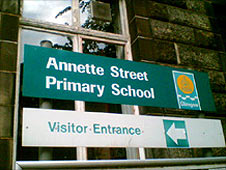
As the Gathered Together Project comes to the end of its funding, I thought it would be a good time to ask the staff team to reflect on some of the aspects of their work over the last 2-3 years. Judy shares her favourite memories from the project.
Ten months ago, I was excited about the prospects of participating in a project that I strongly believed in and am still convinced should continue. Over the years the Gathered Together team has developed a variety of resources to support parents, schools, Parent Councils and community organisations to improve parental involvement- just when the team has acquired the relevant expertise to make a difference, the project is coming to an end!
When I started, I thought making a contribution to the project would be difficult as it had been going on for over two years and most possibilities would have been explored. But there are many aspects and approaches to improving parental involvement, some of which the GT team had only just begun to get to grips with.
Looking back, I think that engaging with community organisations was an important aspect of our work. The lack of understanding about how the Scottish education system works and how parents can support their children is a major challenge for community organisations. Through an Action Learning Set, we were able to share the knowledge and experience gained over the life of our project with participating community organisations. Community practitioners implementing action research at work meant that new strategies were introduced to enable them to provide a better-informed service for families.
Identifying that EM parents and the community organisations that support them are not always up to date with the policy environment is another area we had started developing. There are aspects of child protection that many EM parents do not understand and community organisations could help raise awareness of the legal framework around children. Working with service providers to raise awareness about the diverse cultures could also improve the integration process for families.
I hope the toolkit and the resources developed will reach a wide-range of stakeholders and help support the growing number of children and families coming to Scotland to understand how the school system works and the research we have done about EM parents’ experiences will highlight the need for schools and other education services to put processes in place to support the education of children from different cultural backgrounds and diverse circumstances.
A few weeks ago we were invited to join Stirling Council’s English as an Additional Language teachers Tricia Davenport and David Fletcher for an information session for new parents about Scottish Education. The session was a whistle stop tour of the schools system in Scotland that answered a lot of questions and helped me to finally understand how the new exam system works. Among the questions answered were:
We know from our work with parents who are new to Scotland that they have a lot of questions about the education system. From the fact that children in the UK start school age 5 (unlike many European countries where children don’t start formal education until they are 6 or 7) to the lack of formal testing in primary school there are big differences between parents’ own experience of school and the way their children are being taught. Information events like the one I attended in Stirling are vital as they give parents the opportunity to ask questions and understand how things work in Scotland. To make sure that the parents fully understood the session translators were provided including two sixth year pupils (from China and Poland). Tricia and David helped them to prepare before the session and both the young interpreters sat with a parent and explained what was being said by the presenter. As well as making sure that the parents were given the information in their own language the student interpreters will get certificates recognising their work. By giving them the chance to use their linguistic skills the EAL service was showing them the value of speaking two languages and to recognise what a gift bilingualism is.
Reaching out and engaging with these families can make a huge difference and give them reassurance and a sense of belonging. As David said, “We realise how traumatic it can be for families who move to a new education system, and there can be significant differences between education in Scotland and in other countries. These sessions are a good opportunity to meet parents in an informal setting, to discuss concerns and questions.”

Are you a community organisation working with Ethnic Minority families?
Do you support them with their children’s learning and school matters?
Would your organisation like to develop greater confidence in supporting parents with these issues?
Then Gathered Together’s Action Learning Set could be for you!
For the past two years Gathered Together has been supporting parents from ethnic minorities to become more involved in their children’s learning and school communities and have been working directly with schools, Parent Councils and parents from ethnic minorities. You can read about our work with EM parents and the good practice that’s going on in schools and Parent Councils here.
We know how important it is that these parents are supported to be able to help their children’s learning and be part of the school community. From our experience in the last two years, we are aware that EM parents often feel isolated when it comes to approaching schools for support for their children and prefer to seek help and advice from community organisations. We recognise that the Scottish education system is changing rapidly and organisations not working directly within education can struggle to know how best to support these families and where to signpost parents for help and information.
Gathered Together is offering a unique opportunity to community organisations to join an Action Learning Set to develop their skills and knowledge to better support families.The Action Learning Set will give community practitioners the opportunity to:
The Action Learning set will meet fortnightly on a Tuesday from 9.30-12.30pm (Centrum Building, 38 Queen Street, Glasgow, G1 3DX) as follows:
Following the Learning Set, we will provide further bespoke support for community organisations, as required.
Places are extremely limited and will be confirmed on a first come first serve basis. Therefore, if you would like to participate in this Action Learning, please respond to this invitation as soon as possible.
To book a place email gtevents@bemis.org.uk
The deadline for applications is 15 September 2015.
If you have any questions about this invitation please email judy.wasige@bemis.org.uk or phone 0141 548 8047.
 Today we were invited to the world premier of “Our children’s future- learning in Glasgow” at Annette Street School in Govanhill. The schools and nursery in Govanhill (Annette Street, St Brides, Cuthbertson, Holy Cross and Govanhill nursery) had been working together to make a short film for new parents, explaining, in their own words the important information about schools in Scotland. It was generously funded by Eurocities and the Scottish Traveller Education Programme, particularly to help the Roma population in the area. Govanhill has always been a diverse area with families from Ireland, Pakistan, Poland, Slovakia and Romania making their homes here. Parents who are new to Scotland are often unaware of the differences between here and their home country- the right to get a place in nursery for 3-4 year olds, the fact that primary school education starts when children are 5 and what children should bring for gym class.
Today we were invited to the world premier of “Our children’s future- learning in Glasgow” at Annette Street School in Govanhill. The schools and nursery in Govanhill (Annette Street, St Brides, Cuthbertson, Holy Cross and Govanhill nursery) had been working together to make a short film for new parents, explaining, in their own words the important information about schools in Scotland. It was generously funded by Eurocities and the Scottish Traveller Education Programme, particularly to help the Roma population in the area. Govanhill has always been a diverse area with families from Ireland, Pakistan, Poland, Slovakia and Romania making their homes here. Parents who are new to Scotland are often unaware of the differences between here and their home country- the right to get a place in nursery for 3-4 year olds, the fact that primary school education starts when children are 5 and what children should bring for gym class.
All this information, and more, was covered in the film- but more importantly it was given by parents who have already gone through the system and were talking in their mother tongue. Hearing from another mother in your language what happens in school is far more reassuring and easy to understand- hearing it from the “horse’s mouth”. The film also had children from the schools talking about what happens in school- from showing off the “bug hotel” in the school play ground to demonstrating what to wear for gym class.
It was a real pleasure to attend, all the film stars looked so pleased and a real effort was made to make the event special- red carpet, bouquets of flowers for the mothers who appeared in the film and huge slices of cake served after the premier. Events like this help families feel a part of the school, giving a sense of belonging and the film has a far more lasting legacy- helping new families understand their children’ school.
You can see the film on the STEP website here
One of the brilliant things that’s come out of Gathered Together’s work has been the opportunity to build relations with groups. In Falkirk we ran training for community champions (http://gatheredtogether.bemis.org.uk/?p=330) which Megan Farr from Falkirk Council was also able to attend. This helps to build links between the council and one of the groups our community champion Sofia was running. From that meeting they are now working together to start going out to school to visit primary school classes to speak about Islam.
We have also been able to help some of the community groups we are working with to get the support to develop as organisations as well as apply for the Multi-Cultural Homecoming fund http://bemis.org.uk/project/multicultural-homecoming-2014/. It is great to be able to help groups like the International Women’s group and Rainbow Muslim Women’s group to do more and build relations.
In our videos we’ve also been able to showcase and celebrate good practice- there are so many schools and Parent Councils who do a wonderful job and have developed a real ethos of working with families. We’ve tried to make sure we promote good practice as widely as possible so that they get the recognition they deserve.
And finally through our steering group we’ve been able to open up opportunities to work with Skills Development Scotland to promote their website for parents http://www.myworldofwork.co.uk/section/parents-and-carers to parents from ethnic minorities, help communication between local authorities on how to engage parents and start conversations on how the diverse members of the group can work together.
We’ve got lots of partnership work planned for the new year, including with Education Scotland and Bilingualism Matters- these are exciting times!